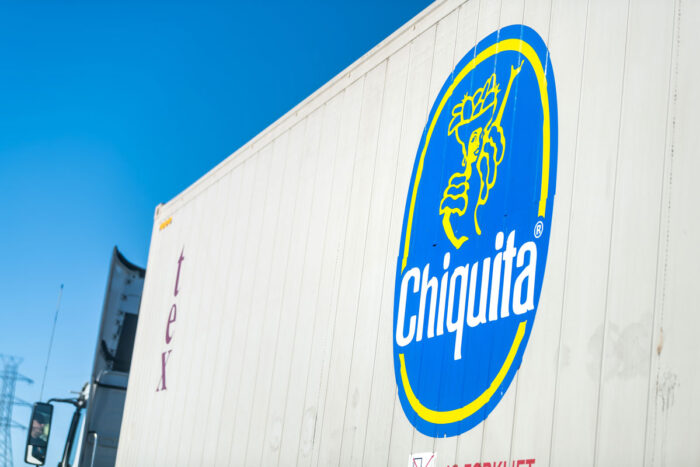Top Class Actions’s website and social media posts use affiliate links. If you make a purchase using such links, we may receive a commission, but it will not result in any additional charges to you. Please review our Affiliate Link Disclosure for more information.

Update:
- A Florida federal judge dismissed several more class action lawsuit claims in a multidistrict litigation (MDL) alleging Chiquita Brands International paid $1.7 million to a paramilitary group in Colombia that killed and tortured plaintiffs’ relatives.
- In an order filed Dec. 15, U.S. District Judge Kenneth A. Marra terminated seven bellwether suits Chiquita faced over its support for Autodefensas Unidas de Colombia (AUC), a right-wing group accused of killing thousands of people.
- In the seven lawsuits he dismissed, Judge Marra said he found no evidence that the AUC killed the relatives of the plaintiffs.
- Judge Marra’s ruling allowed 10 other bellwether cases to proceed to trial, with the judge finding enough evidence that the plaintiffs’ relatives were killed by the AUC or disappeared during armed conflict in Colombia in the 1990s and early 2000s.
Chiquita lawsuit overview:
- Who: A Florida federal judge dismissed several claims from multidistrict litigation alleging Chiquita funded a paramilitary group in Colombia.
- Why: The judge found some of the claims “impermissibly extraterritorial.”
- Where: The Chiquita lawsuit is pending in Florida federal court.
(Aug. 29, 2022)
A Florida federal judge dismissed several class action lawsuit claims in multidistrict litigation (MDL) alleging Chiquita Brands International paid $1.7 million to a paramilitary group in Colombia that killed and tortured the plaintiffs’ relatives.
Chiquita sought dismissal claims for extrajudicial killing, human rights violations, terrorism, torture and war crimes.
Judge finds payments approved in U.S. did not specifically fund terrorist attacks
On Aug. 23, U.S. District Judge Kenneth A. Marra dismissed those claims from the Chiquita lawsuit, finding that the Columbian plaintiffs’ lawsuit was similar to a 2021 U.S. Supreme Court case in which the court rejected Alien Tort Statute jurisdiction in a case involving allegations Nestle aided and abetted child slavery.
The Alien Tort Statute allows federal courts to consider civil lawsuits brought by foreign plaintiffs for torts, such as human rights violations, that violate international law.
The judge found Chiquita Brands International’s “payments approved in the United States were not made specifically to fund terror attacks on innocent civilians, although Chiquita executives allegedly knew or should have known that the money paid to the AUC [Autodefensas Unidas de Colombia] would incidentally fuel such attacks,” according to the judge’s order.
“As in Nestle, this is insufficient to establish a connection between the U.S. based decision making – intended to purchase protection against guerilla attacks on foreign infrastructure – and the tortious conduct of the AUC abroad,” Judge Marra says in the Chiquita lawsuit order.
Judge Marra determined that the plaintiffs’ claims under the Alien Tort Statute were impermissibly extraterritorial and dismissed them with prejudice.
She dismissed the plaintiffs’ allegations of violations of the Torture Victim Protection Act but will give them a final opportunity to amend this claim.
19 Chiquita lawsuits remain in multidistrict litigation
Nineteen Chiquita lawsuits are reportedly pending in the MDL. The plaintiffs include approximately 7,500 Colombian nationals who allege their family members were victims of extrajudicial killings and human rights violations by AUC during the Colombian civil war.
The plaintiffs claim Chiquita has paid more than $1.7 million to the AUC between 1997 and 2004, during which time the right-wing paramilitary group killed nearly 4,000 people in the Urabá region.
Although the payments were approved in the United States, they were intended to buy protection against guerilla attacks on farmlands and infrastructure, not to fund attacks on civilians, the judge noted.
Several years ago, a Chiquita Brands lawsuit alleged the company misrepresents itself as ecologically friendly and conceals its harmful harvesting practices from consumers. The lawsuit is still pending.
What do you think about the allegations in the Chiquita lawsuit? Join the discussion in the comments below!
The plaintiffs are represented by William J. Wichmann of Law Offices of William J. Wichmann PA and John Scarola of Searcy Denney Scarola Barnhart & Shipley.
The Chiquita class action lawsuit is In re: Chiquita Brands International Inc. Alien Tort Statute and Shareholder Derivative Litigation, Case No. 0:08-md-01916, in the U.S. District Court for the Southern District of Florida.
Don’t Miss Out!
Check out our list of Class Action Lawsuits and Class Action Settlements you may qualify to join!
Read About More Class Action Lawsuits & Class Action Settlements:
- Cash App, Block class action claims data breach exposed data of 8.2 million users
- National Republican Congressional Committee class action alleges organization sent unsolicited donation texts
- Biden to provide student loan relief to those who make less than $125,000, extends payment freeze
- Twitter security problems pose serious threat, whistleblower says














